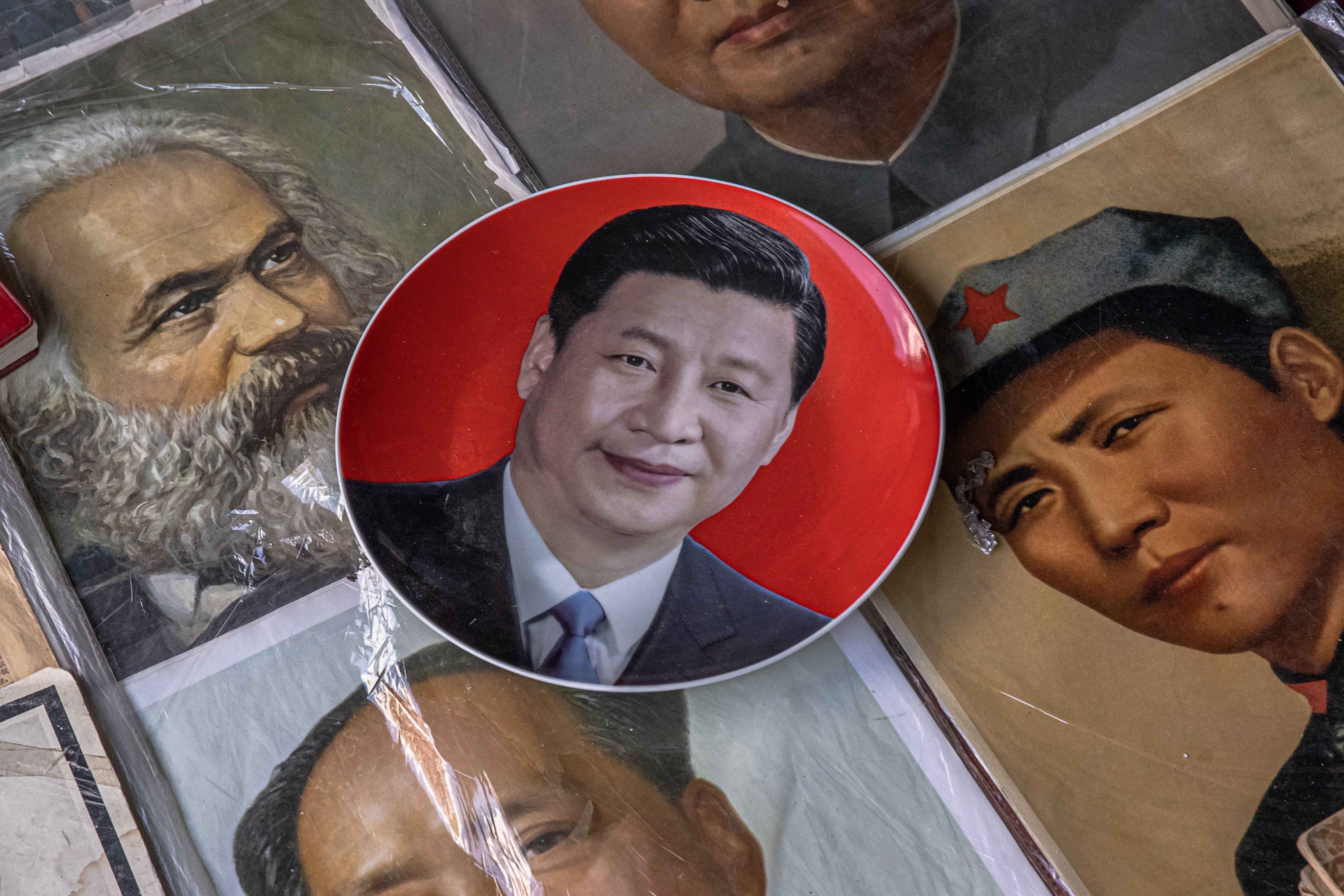Political essays trigger fear of another ‘cultural revolution’ in China
A pair of essays published in China has triggered people’s fears about the gradual emergence of another ‘cultural revolution’, reports William Yang


Over the last week, China has been engulfed in a public discussion about whether it is witnessing the emergence of another “cultural revolution” that would see the Chinese Communist Party (CCP) dictate the direction of the country’s development.
It all began with an essay published by Li Guangman, which praised the “reforms” that the CCP has launched in the technology, entertainment and education sector in recent months. Li, a former editor of the trade publication Central China Electric Power, describes the crackdown as “a profound revolution” that has spanned the economic, financial, cultural and political spheres.
“This revolution is turning away from a capital-centered approach to a people-centered approach, and it signals a return to the CCP’s original goal as well as a return to the foundation of socialism,” he wrote in the essay, which he published via his personal social media account.
The essay was shared widely online by China’s state media outlets, raising concerns that the Chinese government may initiate a return to the turbulent era that was seen during the Cultural Revolution. “The language of the essay is slightly inciteful, and China shouldn’t be disrupted by someone using ‘Cultural Revolution style’ language,” wrote one internet user on China’s popular microblogging site Weibo.
The Cultural Revolution was a decade-long social and political movement that lasted from 1966 until the death of the then Chinese leader Mao Zedong 10 years later, during which young people in cities were sent to rural areas for re-education and millions of lives were lost.
While most websites run by state media outlets shared Li’s essay, they all edited out one particular section of the piece, which described some celebrities targeted in the latest government campaign as “toxic tumours” on society and claimed that tech giants such as Didi Chuxing and the Ant Group were foreign agents “in opposition to the people”.
A few days later, Hu Xijin, the editor in chief of China’s nationalist tabloid Global Times, published an essay that rejected the arguments presented by Li, arguing that his piece had misinterpreted the direction of the CCP’s policies.
“The so-called profound revolution mentioned by Li in his article twisted the series of market regulatory measures introduced by the government in recent days,” Hu wrote in the essay, published via his personal social media account. “The purpose of these regulations is to regulate the market, correct and prevent the barbaric growth of capital and the various side effects it brings,” he said.
Hu claimed that the goal of these regulations was to accelerate economic and social development while promoting common prosperity and strengthening efforts towards equity and justice, all of which represent improvements in social governance, not revolutions.
While some internet users support Hu’s arguments, the debate has also led some to wonder if it represents the clash of different perspectives within the CCP. While Hu’s article was temporarily unshareable on China’s popular messaging app WeChat, Li’s article later became unsearchable on WeChat as well.
Chinese historian Zhang Lifan said state media’s move to circulate Li’s article showed that it had received support from some important figures in the CCP, adding that the move was similar to former Chinese leader Mao Zedong’s decision to support the first “big-character poster” during the Cultural Revolution.
“Whenever the CCP encounters some challenges in history, they will deploy their revolutionary tactics,” he said.
On the other hand, Zhang said Hu Xijin’s article represented the opposition within the CCP, as those who experienced the Cultural Revolution clearly don’t want that particular period in Chinese history to repeat itself.
Prominent Chinese author Murong Xuecun said Hu’s analysis represented the perspective of certain factions within the CCP, and since the term “Cultural Revolution” encompasses a broad range of phenomena, he thinks Hu Xijin was trying to emphasise that the rapid changes that have taken place in recent months haven’t deviated from the path of development that the CCP has undertaken.
“I think the concept that most people are trying to convey through [comparisons with the] ‘Cultural Revolution’ is the state of complete disorder, but Hu wants to emphasise that China’s development is following the party’s original direction,” he wrote in a Facebook post. “My belief is that the person at the front of ‘the car’ doesn’t really know where the car is heading towards.”
While some view the debate generated by Li and Hu’s essays as the clash between different opinions of the recent regulatory campaigns within the CCP, other experts think they simply represent two different styles within the party, which are both supportive of the existing system but going against universal values.
Teng Biao, the Pozen visiting professor at the University of Chicago, said that since Li’s essay was widely circulated by state media outlets, it showed that there are some topics to which the government wishes to draw attention. “The bleak tone of the article makes many people wonder if the writing style of the Cultural Revolution has returned,” he told The Independent.
“In the article, Li touched on the government’s plan to crack down on the entertainment and cultural sector, and prior to its release, Beijing has just begun to crack down on some companies and celebrities. The move to circulate an article like this now shows that it contains some topics that the government wants to highlight,” he added.
Over the last few months, the Chinese government has launched an aggressive campaign targeting several sectors in the country. After China tightened regulations in the technology sector, the entertainment industry has become the latest focus of its crackdown.
Last month the Chinese government announced a ban on ranking celebrities on social media platforms, while imposing tax fines on some of China’s biggest pop stars. Additionally, state media outlets published articles denouncing the trend for “worshipping idols”, and content related to one of the country’s most popular actors, Zhao Wei, was removed from online platforms.
While some worry about a return to the turbulent era of the Sixties and Seventies, Teng Biao pointed out that the crackdown on civil society has never stopped since Chinese president Xi Jinping came to power. He described the crackdown under Xi as “comprehensive and imposing”.
“All these crackdowns are steps taken by Xi’s government to safeguard the CCP’s authoritarian rule in China,” he told The Independent.
Chinese historian Zhang Lifan thinks that the latest crackdown reflects the political and economic difficulties that China is encountering. “I think the crackdown is related to the international challenges that China is facing as well as the tightened control across the country,” he said.
Teng Biao said that while crackdowns are inevitable, they usually begin with the group of people who have the greatest ideological conflict with the authorities, and gradually shift to groups that are viewed as more moderate. However, he still has hope for the voices of resistance in China amid the latest government campaign.
“After decades of civil development, the voices of resistance will not be easily quelled, so the government’s suppression will continue and they will move targets to the more grassroots level in civil society,” he said.
Join our commenting forum
Join thought-provoking conversations, follow other Independent readers and see their replies
Comments
Bookmark popover
Removed from bookmarks